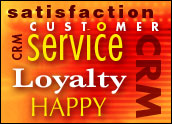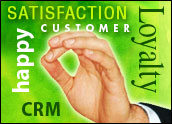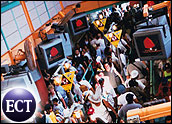
In the economic clouds of recent years, marketers discovered a silver lining in multichannel marketing. Numerous reports and case studies showed that online marketing of big-ticket items such as automobiles improved offline purchases. Similarly, mail-order catalogs prodded many stay-at-home shoppers to shop online, their virtual carts jammed with clothing and home furnishings.
In recent research, MSN and research partners the Advertising Research Foundation and the Internet Advertising Bureau sought to quantify the return on online marketing investments not for expensive items but for consumer packaged goods (CPGs). Their results, perhaps unsurprisingly, are bullish on online advertising, but some analysts urge CPG sellers to approach the online world cautiously.
Online Jell-O
One of the Microsoft network’s goals in the research, of course, was to attract more advertising to its online network.
“We are hopeful that this research will demonstrate to the industry, as much as it has to our marketers, the value of online advertising in the effectiveness of producing a higher ROI and therefore increase online advertising buys,” said Stephen Kim, director of media research for MSN.
MSN set out to define online advertising’s effects on branding and offline purchasing; measure online advertising’s cost-efficiency (ROI); and examine all CPG marketing in an effort to determine the optimal media mix.
Online advertising for products such as Jell-O and Coffee Mate generated lifts in sales ranging from 7 percent to 12.5 percent. After Jell-O posted holiday-related ads around Halloween, Thanksgiving, Christmas and New Year’s, offline sales jumped 7.5 percent. Coffee Mate achieved a 10 percent lift in sales after an online campaign.
“Marketers can now conduct research that reveals the relative effectiveness and efficiency of different marketing elements,” Kim told CRM Buyer. The impact on TV and print budgets will differ by brand and a number of other variables, including co-op marketing contracts with local retailers, event sponsorships and agreements with celebrity endorsers.
The study recommended that CPGs should boost their online ad investment from today’s average of less than 1 percent of total advertising spending to at least 5 percent. As more research is completed in this area, MSN’s researchers suggest that spending will shift within marketing allocations, and media buyers and sellers will enter nontraditional price negotiations because they will accept a new ranking of the relative value of different media.
MSN expects to replicate this study’s media-neutral methodology, developed by research firm Marketing Evolution, in other industries.
Annoying Ads
Meanwhile, however, Internet users have indicated that some varieties of online advertising may be unwelcome. An October 2004 survey conducted by GarnerG2 found that of 2,540 participants, 55 percent found some form of online advertising annoying. Only telemarketing and door-to-door marketing promotions outranked Internet advertising in their ability to annoy.
Pop-up ads annoyed 55 percent of the people polled, and pop-under ads disgusted 54 percent. Non-permission-based e-mails and Internet banners weren’t far behind, getting the goats of 48 percent and 47 percent, respectively.
Laura Ries, president of Ries & Ries, a branding consultancy based in Roswell, Ga., acknowledged that advertising spending increasingly will shift away from traditional media. But she discouraged CPG marketers from moving their money to Internet advertising.
“The main function of the Internet is the ability to be interactive,” she said, and consumers often interact with the medium by actively avoiding ads. Ries said that the uptick in online advertising reflects marketers’ lack of confidence in traditional media rather than their confidence in the newer channel. “The decline of TV advertising is really the significant story,” she said.
“I’m not so sure that advertising traditional packaged goods on the Internet is such a good idea,” she continued. “Advertising on the Web is most effective when you have something you can buy on the Web,” Ries said. “The benefit of the Internet is immediacy, and online advertising is less effective for CPGs because there’s no immediate purchase opportunity.”






















































It would be interesting to see how many people are "annoyed" or "disgusted" by advertising in other media. The use of those words betrays a bias. That consumers don’t like advertising wherever it appears is not news. Nor is the now rapid deterioriation of the TV ad market. More critically is given these facts how do marketers engage with consumers today and in the future.- here interactivity is an opportunity not a problem to be solved. And the best place to discover how to use it to build brands and sell products is the Internet.
Kathy L. Sharpe
CEO
Sharpe Partners